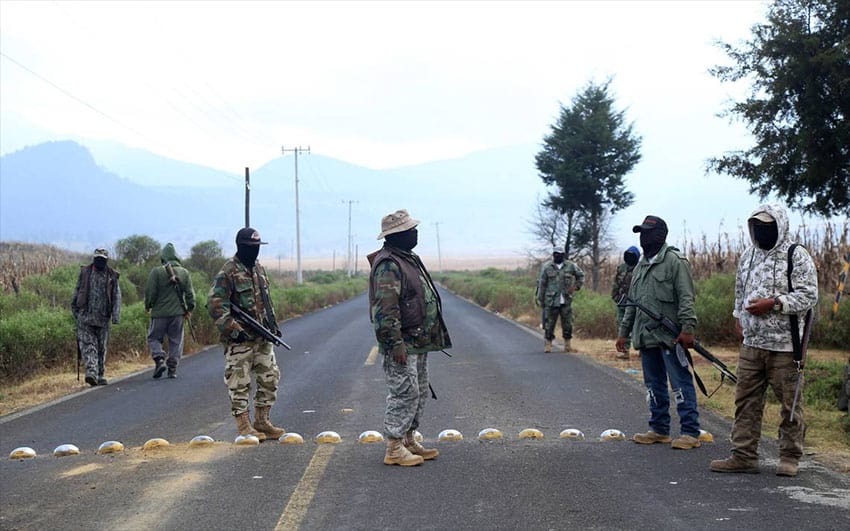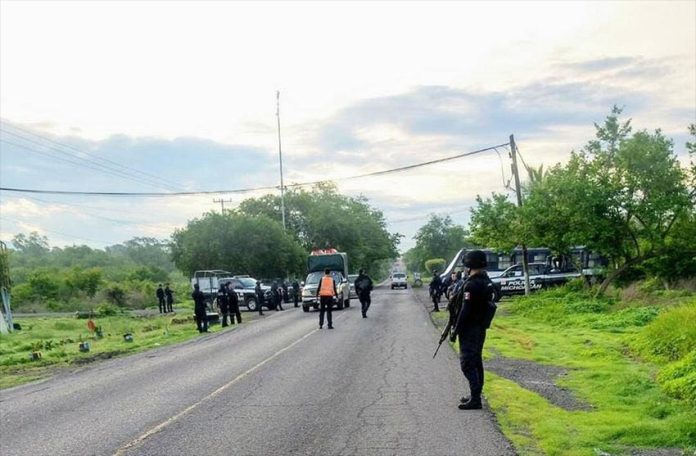In collaboration with federal authorities, the Michoacán government has removed almost 100 illegal roadblocks since taking office last October and intends to get rid of those that remain by the end of the month, according to a senior official.
State government secretary Carlos Piña said there were at least 111 illegal highway checkpoints in Michoacán when the administration led by Governor Alfredo Ramírez Bedolla took office on October 1, 2021. Now there are just 17, meaning 94 have been removed.
Extrajudicial roadblocks in Michoacán and elsewhere are usually set up by organized crime groups or vigilante self-defense forces, some of which are accused of being in cahoots with criminals.
In Michoacán, groups such as the Jalisco New Generation Cartel (CJNG) and the Cárteles Unidos have established blockades to aid their efforts to control certain parts of the state, such as the Tierra Caliente region.

Some towns, such as Aguililla, have effectively been cut off by the checkpoints, creating shortages of essential products including food, medicines and gasoline.
Due to a blockade, residents of the small town of Zicuirán formerly had to take a roundabout four-hour route to get to La Huacana, the largest town in the municipality of the same name. However, with the highway now cleared they can get to the municipal seat in just 25 minutes.
Last Friday, federal and state authorities also removed an illegal checkpoint on the highway between Zicuirán and Churumuco, an operation Governor Ramírez highlighted in a slickly produced video he posted to his Twitter account.
“In coordination with the federal government, the [Michoacán] Civil Guard, the Ministry of National Defense and the National Guard, we recovered the Zicuirán-Churumuco highway, which was blocked since 2018,” read text superimposed over footage of security personnel and vehicles.
Estamos recuperando la seguridad en Michoacán a través del fortalecimiento de la coordinación entre distintos niveles de gobierno y acciones conjuntas para preservar la paz.#HonestidadYTrabajo pic.twitter.com/PDWyB7J3A4
— Alfredo Ramírez Bedolla (@ARBedolla) September 3, 2022
The video also noted that the army and National Guard have established a new base in the municipality of La Huacana, adding that “with actions like this we’re recovering security in Michoacán.”
Despite that claim, Michoacán was the second most violent state in Mexico in the first seven months of the year with almost 1,600 homicides.
Piña, however, focused on the state government’s objective of removing the 17 remaining roadblocks before the end of September.
He said that authorities were in talks with indigenous communities in the eastern region of Michoacán with a view to removing four checkpoints three that were set up to counteract organized crime.
“They’re only asking for a greater presence of federal forces, and I believe that we’re on the verge of resolving [the issue],” Piña said. The official said that the lifting of roadblocks provides citizens with certainty that they can travel safely on highways in Michoacán.
The newspaper Milenio reported that there have been no incidents during operations to clear hijacked roads, but acknowledged that violence remains a problem in some parts of Michoacán, such as Tepalcatepec, one of several Tierra Caliente municipalities where the CJNG laid improvised explosive devices to aid its fight against the Cárteles Unidos and official security forces.
With reports from Milenio
